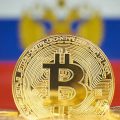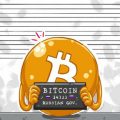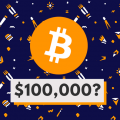The Bank of Russia is updating the list of signs indicating the unusual nature of transactions and expanding the listdubious transactions. Operations with virtual assets are included in the updated classification.
Bank of Russia published a draft on its websiteinstructions on amendments to Regulation No. 375-P “On requirements for the rules of internal control of a credit institution in order to counter the legalization (laundering) of proceeds from crime and the financing of terrorism”. Among other things, the project provides for updating the list of signs indicating the unusual nature of the transaction.
As stated by RBC representative of the Bank of Russia,the updated list of suspicious transactions is not exhaustive, and banks can still supplement it with their own rules. The draft is submitted for public discussion and comments on it are accepted from February 14 to February 28, 2020. The relevant regulatory act of the Bank of Russia will enter into force on April 1, 2021.
In the updated project, operations related toacquisition or sale of virtual assets have been added to the list of indicators that indicate the possible laundering of proceeds from crime. Once the changes are adopted, the new classification will give banks the right to suspend or refuse customers transactions related to the purchase and sale of virtual assets, and in extreme cases — terminate the service contract.
What exactly is meant by virtualassets, the document does not explain. It does not directly indicate cryptocurrencies, public or private blockchains and tokens, and the interpretations in the media are different. For example, Rossiyskaya Gazeta believes that these include “digital counterparts of debt receipts, bonds and equity rights”. In this capacity, tokens based on public and private blockchains can serve, but not cryptocurrencies themselves. RBC writes directly about cryptocurrencies. However, before the entry into force of this amendment in April next year, the definition of virtual assets is likely to be determined.
While various departments are takingown measures to regulate the cryptocurrency industry, the law on digital financial assets, which should become the main regulatory mechanism for the industry, is still under consideration in the State Duma. Anatoly Aksakov, head of the State Duma’s financial market committee, said earlier this month that the Bank of Russia and lawmakers were able to resolve the differences, and the law could be passed in March.
in December, the Ministry of Internal Affairs of the Russian Federationtogether with other departments, it began to prepare a proposal to create a legal mechanism to seize virtual assets in order to confiscate them.
</p></p>


